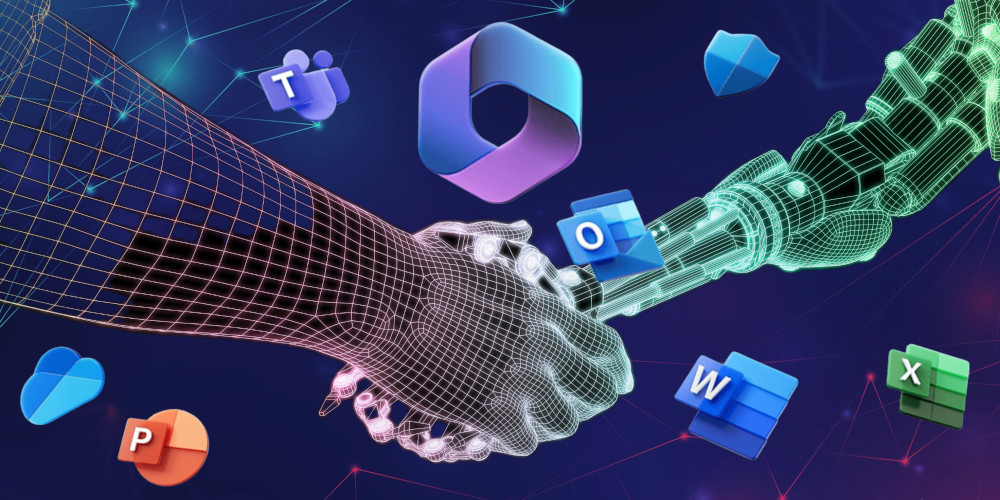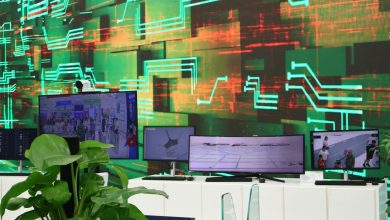
In today’s rapidly evolving tech landscape, software engineers face unprecedented change as artificial intelligence transforms how code is written, tested, and deployed. The shift isn’t just coming, it’s already here, reshaping development workflows and career trajectories for engineers worldwide.
According to a recent report, job postings requiring AI skills grew by a 74% from 2020 to 2022, indicating massive demand for these talents across software development fields.
For remote software professionals, this transformation presents both challenge and opportunity. Those who commit to AI skills development position themselves at the forefront of innovation, while those who resist may find themselves increasingly left behind as competition grows for software engineer jobs remotely.
The Evolving Landscape of Remote Software Engineering
The software development world has undergone remarkable changes in recent years, with distributed teams becoming the norm rather than the exception. This shift has fundamentally altered how engineering teams collaborate, communicate, and deliver products.
Remote work has reshaped the software engineering profession, breaking down geographical barriers and opening opportunities for global talent. Companies increasingly rely on distributed teams to access specialized skills and enable 24-hour development cycles. This trend accelerated dramatically following the pandemic, with many organizations maintaining remote-first policies even as offices reopened.
For professionals seeking software engineer jobs remote, mastering AI-driven technologies not only boosts productivity but also makes them more attractive to global employers who value adaptability and innovation in distributed teams.
AI’s Impact on Traditional Coding Workflows
Artificial intelligence is transforming how code gets written. Tools like GitHub Copilot and ChatGPT can generate entire functions, debug complex issues, and explain obscure code snippets in seconds. These capabilities don’t just speed up work, they fundamentally change what’s expected from engineers, shifting focus from syntax memorization to architectural thinking and problem formulation.
As AI skills development becomes increasingly valuable, we’re seeing a growing divide between AI-augmented engineers and those relying solely on traditional methods. Engineers who master AI tools complete tasks in hours that might take days using conventional approaches, creating productivity differences that employers can’t ignore.
AI Fundamentals Every Remote Software Engineer Should Master
For remote software engineers looking to stay competitive, developing specific AI competencies has become essential. These skills represent the foundation upon which specialized expertise can later be built.
Machine Learning Essentials for Daily Coding
Understanding basic machine learning concepts can transform your approach to everyday engineering challenges. Machine learning models can identify patterns in code, predict likely bugs, and suggest optimizations that might otherwise remain undiscovered.
Learning AI for developers should start with practical applications rather than theory. Focus on how ML can streamline your current workflow, whether that’s automating repetitive tasks, generating test cases, or identifying security vulnerabilities before they reach production.
Natural Language Processing for Code Generation
NLP represents one of the most transformative AI technologies for developers. Modern language models can understand code context, generate implementation suggestions, and even translate between programming languages with surprising accuracy.
Mastering prompt engineering, the art of effectively communicating with AI systems, has become a critical skill. The difference between a mediocre AI suggestion and an excellent one often lies in how you frame your request, making this skill invaluable for software engineering career growth.
AI Ethics and Responsible Implementation
As you integrate AI into your development practice, understanding the ethical implications becomes crucial. AI systems can perpetuate and amplify biases present in training data, potentially introducing discrimination into software products.
Remote engineers must develop frameworks for responsible AI implementation, particularly when working across different cultural contexts. This includes establishing clear processes for human oversight and intervention when AI outputs seem problematic.
The journey of upskilling with AI isn’t just about technical mastery, it’s about developing judgment about when and how to apply these powerful tools responsibly.
Strategic AI Upskilling Pathways for Remote Developers
Developing AI competencies requires a structured approach. Remote engineers have unique considerations when planning their learning journey, balancing independent study with collaborative opportunities.
Self-Directed Learning Approaches
Self-paced learning platforms offer flexible options for busy professionals working across time zones. Those platforms provide comprehensive AI foundations through structured courses.
Building personal AI projects represents the most effective way to cement your learning. Consider creating tools that solve real problems in your workflow, an AI code reviewer, a bug predictor, or a documentation generator are all valuable starting points.
Formal Education and Certification Options
For those seeking credentials, formal AI certification programs provide structured learning paths with recognized outcomes. Options range from university certificates to specialized programs from tech companies like Google, Microsoft, and Amazon.
When evaluating these programs, consider both the technical content and the networking opportunities they provide. The connections you make during your AI skills development journey can prove as valuable as the knowledge itself.
Community-Based Learning Methods
Remote engineers can sometimes feel isolated, making community engagement particularly valuable during upskilling. Contributing to open-source AI projects offers hands-on experience while building your professional network.
Virtual hackathons and AI competitions provide intensive learning experiences with immediate feedback. These events force you to apply concepts under time pressure, accelerating your learning curve.
Building a strategic upskilling plan that combines multiple approaches typically yields the best results for remote software engineers seeking to expand their AI capabilities.
AI Tools Transforming Remote Development Workflows
The practical application of AI in daily engineering work takes many forms. Understanding the available tools and their optimal use cases helps remote engineers maximize productivity.
AI Coding Assistants and Their Optimization
Code generation tools like GitHub Copilot, Tabnine, and Amazon CodeWhisperer can significantly accelerate development. These tools suggest completions, generate boilerplate, and even propose entire functions based on context and comments.
Customizing these assistants to match your coding style improves their effectiveness. Taking time to review and refine AI suggestions builds an understanding of both the tool’s capabilities and its limitations.
Automated Testing and Quality Assurance
AI is revolutionizing software testing by generating comprehensive test suites, identifying edge cases, and predicting potential failure points. These capabilities are especially valuable for remote teams, where coordinating QA efforts can be challenging.
Software engineering career growth increasingly depends on understanding these testing frameworks. Engineers who can effectively implement AI-powered QA processes deliver higher quality code with fewer manual testing resources.
 AI-Enhanced Collaboration Tools
AI-Enhanced Collaboration Tools
For distributed teams, AI tools can bridge communication gaps through features like automatic code documentation, semantic code search, and intelligent issue routing. These tools help maintain alignment across time zones and reduce coordination overhead.
Real-time translation and summarization features can be particularly valuable for international teams, ensuring that language differences don’t impede collaboration on complex engineering problems. The integration of these AI tools into your workflow represents a significant lever for productivity improvement as a remote software engineer.
Final Thoughts on AI-Powered Engineering Growth
Artificial intelligence entering the sphere of software development can be viewed as both a challenge and an opportunity of remote engineers. Individuals who invest in AI-assisted upskilling place themselves at the industry forefront, prepared to solve more complicated tasks with new strengthened abilities.
It is often said that the key to success is not only to learn particular technologies but to have an AI-first mindset and always find situations where human creativity can be enhanced by machine intelligence. Remote software engineers can turn AI, which seems to be a menace, into a strong supporter of their professional growth by applying technical expertise, ethical understanding, and vision.
The future is with the engineers who do not see AI as a competitor, but rather the most effective tool ever created to assist human beings in solving more problems.
Common Questions About AI Upskilling for Engineers
Is AI Really Worth Learning as a Software Engineer?
Absolutely. In addition to direct productivity gains, AI expertise allows accessing better pay and specialization. AI engineers are also usually paid 20-30 percent more than conventional software engineers, and the number of employers seeking them is still increasing across the board.
Will AI Replace Software Engineers?
No, it will revolutionize the profession. AI is not killing the engineering jobs, it is just transforming the engineering task, moving the emphasis behind the implementation specifics to the problem framing, architectural choices, and human-friendly design. The most vulnerable engineers are those who refuse to change.
How Can I Start Learning AI Alongside My Current Job?
Start with the close-to-practice applications that can be used in your present work. Play around with GitHub Copilot or other augmented coding tools and slowly dive into the idea of machine learning by doing practical projects. Most engineers realize that even 5-7 hours per week can make great progress.

 AI-Enhanced Collaboration Tools
AI-Enhanced Collaboration Tools


